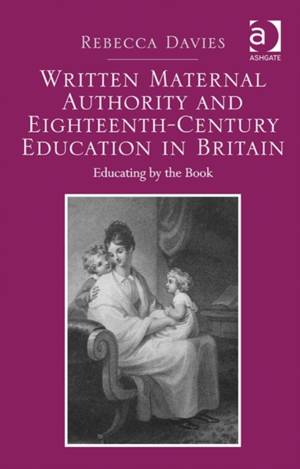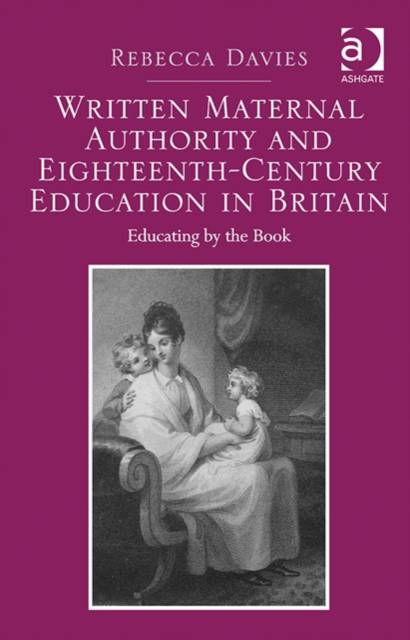
- Afhalen na 1 uur in een winkel met voorraad
- Gratis thuislevering in België vanaf € 30
- Ruim aanbod met 7 miljoen producten
- Afhalen na 1 uur in een winkel met voorraad
- Gratis thuislevering in België vanaf € 30
- Ruim aanbod met 7 miljoen producten
Zoeken
Written Maternal Authority and Eighteenth-Century Education in Britain
Educating by the Book
Rebecca Davies
Hardcover | Engels
€ 195,95
+ 391 punten
Omschrijving
Examining writing for and about education in the period from 1740 to 1820, Rebecca Davies's book plots the formation of a written paradigm of maternal education that associates maternity with educational authority. Examining novels, fiction for children, conduct literature and educative and political tracts by Samuel Richardson, Sarah Fielding, Mary Wollstonecraft, Maria Edgeworth, Ann Martin Taylor and Jane Austen, Davies identifies an authoritative feminine educational voice. She shows how the function of the discourse of maternal authority is modified in different genres, arguing that both the female writers and the fictional mothers adopt maternal authority and produce their own formulations of ideal educational methods. The location of idealised maternity for women, Davies proposes, is in the act of writing educational discourse rather than in the physical performance of the maternal role. Her book contextualizes the development of a written discourse of maternal education that emerged in the enlightenment period and explores the empowerment achieved by women writing within this discourse, albeit through a notion of authority that is circumscribed by the 'rules' of a discipline.
Specificaties
Betrokkenen
- Auteur(s):
- Uitgeverij:
Inhoud
- Aantal bladzijden:
- 182
- Taal:
- Engels
Eigenschappen
- Productcode (EAN):
- 9781409451686
- Verschijningsdatum:
- 19/09/2014
- Uitvoering:
- Hardcover
- Formaat:
- Genaaid
- Afmetingen:
- 156 mm x 233 mm
- Gewicht:
- 499 g

Alleen bij Standaard Boekhandel
+ 391 punten op je klantenkaart van Standaard Boekhandel
Beoordelingen
We publiceren alleen reviews die voldoen aan de voorwaarden voor reviews. Bekijk onze voorwaarden voor reviews.











